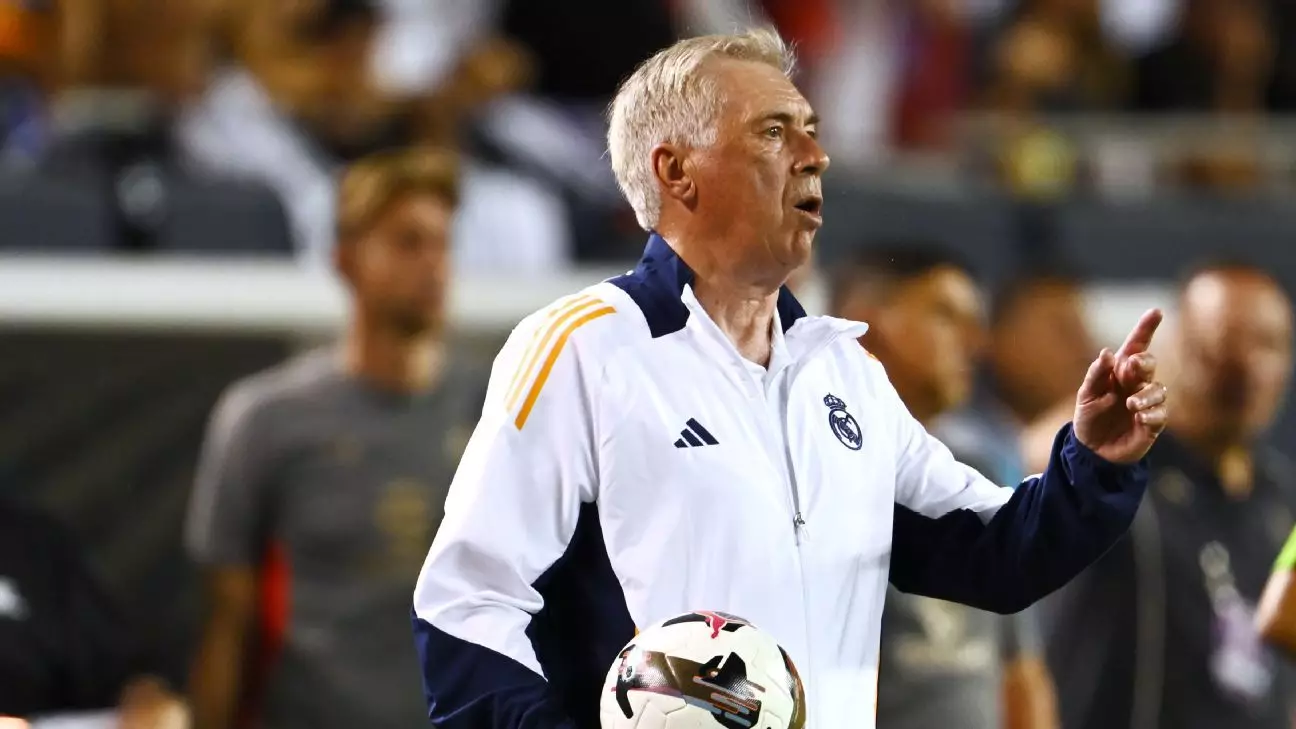In the realm of modern football, the demands placed on players have escalated to unprecedented levels, stirring concerns about their health and longevity in a grueling season. Recently, Real Madrid’s head coach Carlo Ancelotti raised a significant point regarding player welfare during a press conference. His assertion that players might accept wage reductions in exchange for a lighter schedule sparks a necessary conversation on the balance between competitiveness and player health. This article delves into Ancelotti’s views, the growing discontent among players, and the wider implications for the sport.
With the implementation of an expanded Champions League and a revamped Club World Cup, players are confronted with the daunting prospect of participating in up to 85 matches in a single season. Such a schedule not only amplifies the risk of injuries but also heightens fatigue, prompting players like Manchester City’s Rodri to voice concerns about potential strike action. Their fears echo a universal worry among professionals navigating a landscape increasingly defined by commercial interests and less by athletic well-being. Ancelotti’s hypothesis suggests that players might be open to negotiating their salaries for the sake of fewer matches, igniting a dialogue about the fundamental priorities of the sport.
“Football needs to reflect,” Ancelotti stated, addressing the urgent need for structural reconsiderations within the sport. While the players‘ protests may indeed not alter the current calendar, they underscore the necessity for proactive discussions about future schedules. The focus should not only be on the business of football but significantly on the health of its key contributors—its players. By expanding the dialogue beyond monetary earnings to emphasize player sustainability, Ancelotti advocates for a cultural shift that could position athlete welfare at the core of football governance.
As Los Blancos prepare for their LaLiga showdown against Espanyol, their recent form—a resilient 3-1 victory over Stuttgart—provides a glimmer of hope amid the turmoil over scheduling. Ancelotti emphasized the potential for improvement in his squad, pointing out that while the team is not operating at peak performance, it is early in the season. He highlighted the dynamic of his squad, encouraging continuity and consistency while recognizing that the path to optimal performance will require time and patience.
Ancelotti has also been questioned about his tactical setup, particularly regarding a potential transition to a four-man midfield. However, he firmly believes that achieving balance is more of a collective effort rather than a mere shift in formation. This insight suggests that the onus is on the players to develop synergies that can compensate for any structural changes. It emphasizes the importance of teamwork and unity rather than seeking quick fixes through tactical shifts.
The Rise of Young Talents
The Madrid coach has also expressed confidence in integrating young talent into the first team, notably highlighting Brazilian forward Endrick, who has shown promise since his arrival from Palmeiras. Ancelotti’s determination to feature him more prominently indicates a commitment to fostering youth talent, which could also serve as a long-term strategy to mitigate the burdens of an overloaded squad. The emergence of talents like Endrick, paired with comprehensive planning, could fortify Real Madrid and add a layer of resilience to their operations.
As the season looms ahead, Real Madrid faces challenges that extend well beyond the pitch. While Carlo Ancelotti’s insights shed light on pressing issues surrounding player wellbeing and managerial strategies, the responsibility to forge a healthier football culture extends to governing bodies and clubs alike. Balancing the demands of competition with the necessity of caring for players is not just an obligation but an imperative for preserving the integrity of the game. As discussions evolve, football must strive for an adaptable future where its players‘ welfare remains paramount, ensuring that the joy of the game does not come at the cost of its protagonists.


Napsat komentář